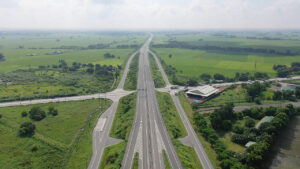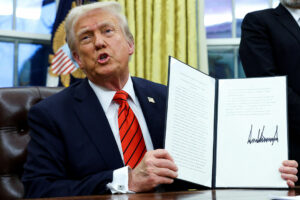Delay in full cashless toll collection could hinder efforts to advance transport system

By Ashley Erika O. Jose, Reporter
THE Department of Transportation’s (DoTr) move to postpone the implementation of full cashless toll collection at major expressways would likely hinder the country’s capacity to advance its transport system, an analyst said.
“We can’t do without it as it will impede our ability to compete in the economic realm among our ASEAN neighbors and the rest of the world. Transportation is a basic building block of economic development, and the more timely we address ‘roadblock’ the better equipped we will be in building a better country,” Nigel Paul C. Villarete, senior adviser on PPP (public-private partnership) at Libra Konsult, Inc., said in a Viber message.
Last week, newly appointed Transportation Secretary Vivencio B. Dizon said he had ordered the Toll Regulatory Board (TRB) to suspend the implementation of full cashless collection across all tollways which is scheduled for implementation on March 15.
“To keep on postponing what the government already decrees as a good governance scheme does not speak well of its ability to execute well… The government agencies must study well all its execution functions and its ability to do them within a reliable and achievable timeframe,” Mr. Villarete said.
This is the third time the planned implementation has been postponed. Fines for motorists passing through expressway without RFID or radio frequency identification (RFID) tags, under Joint Memorandum Circular No. 2024-001, were supposed to be enforced starting Oct. 1 last year.
However, the Transportation department deferred the implementation to 2025 to give tollway operators and concerned agencies time to fine-tune their operations.
The planned implementation of cashless toll collection will not be implemented for the foreseeable future, Mr. Dizon said, describing the scheme as “anti-poor.”
He added he plans to work with the Metro Pacific Tollways Corp. (MPTC) and San Miguel Corp. (SMC) to make it more efficient.
BusinessWorld sought comments from MPTC and SMC on the postponement of the cashless only toll collection system, but it had yet to receive a response by the deadline.
To recall, the TRB said that cashless or contactless toll collection on major toll expressways will be implemented on March 15.
The TRB said previously that the implementation of a cashless toll collection is needed for the planned electronic toll collection interoperability. The TRB also plans to introduce a unified RFID wallet system that can be used in various tollways.
Motorists passing through expressways without valid RFID or electronic toll collection (ETC) device will be allowed to enter the toll plaza and shall be installed with an ETC device.
Although allowed to pass through, motorists without valid RFID tags will be issued a temporary operator’s permit or a show cause order for violating the policy and a penalty will be imposed.
Just last week, NLEX Corp., a unit of MPTC, said it is investing approximately P1.4 billion to modernize and enhance technology across its expressway network in preparation for full cashless toll transactions.
In a statement in January, SMC Infrastructure, which operates SMC’s toll road network, said the company is prepared to implement a cashless toll payment and that all of its toll roads are equipped to support its implementation.
More than 90% of tollway users already have RFID tags, TRB said.
Meanwhile, Rene S. Santiago, former president of the Transportation Science Society of the Philippines, called DoTr’s decision a welcome development.
“As I stated years ago, TRB is favoring toll operators over motorists. There should always be a cash lane; non-regular users would not need RFID,” Mr. Santiago said in a Viber message.
Senator Grace Poe-Llamanzares, likewise, backed DoTr’s decision to defer the full cashless payment on expressways, noting that cash lane options for motorists should always be in place for “unforeseen circumstances.”
“The no-cash scheme is ideal, but it cannot be imposed until operators can guarantee that all defects in the system are fixed, such as malfunctioning booms, unreadable stickers and broken RFIDs,” she said in a statement on Saturday.




